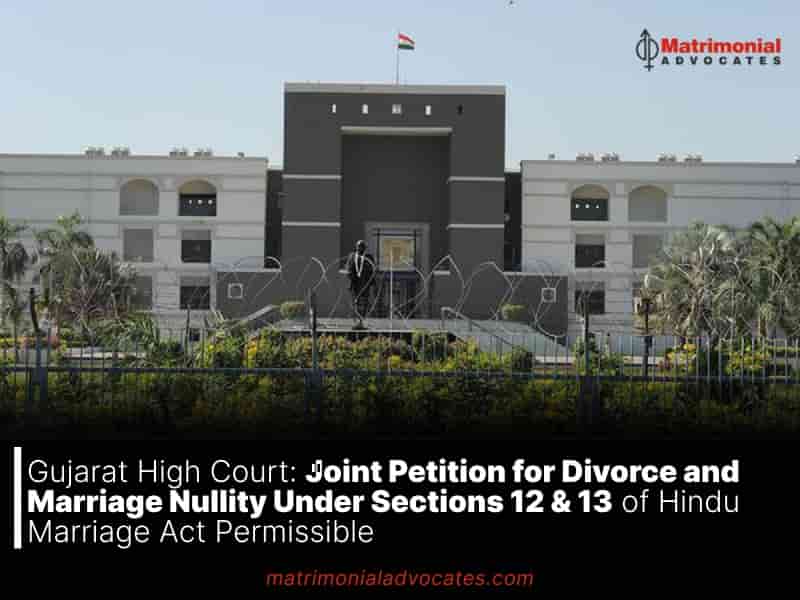
The Gujarat High Court was considering a Civil Revision Application challenging the order passed by the Family Court.
The Gujarat High Court recently held that a composite suit seeking marriage nullity under Section 12(1) and divorce under Section 13(1)(a) of the Hindu Marriage Act, 1955, is not restricted.
The ruling came while hearing a Civil Revision Application challenging a Family Court order.
The Single Bench of Justice Sanjeev J. Thaker explained, “…whether the plaint discloses cause of action or not is essentially the question of fact, but whether it does or does not, must be found out from the reading of the plait itself and for that purpose, averments made in the plaint in their entirety must be held to be correct.”
Factual Background
The petitioner-husband filed a combined suit under Sections 12(1) and 13(1)(ia) of the Hindu Marriage Act, 1955, seeking a declaration of marriage nullity and/or dissolution through a divorce decree.
In response, the respondent-wife appeared and filed an application under Order VII Rule 11(1)(a) and (d) of the Code of Civil Procedure, 1908, requesting the plaint’s rejection. However, the Family Court dismissed the application, reasoning that prohibiting the petitioner-husband from filing a composite suit would lead to multiple proceedings.
Reasoning
After examining the petition, the Bench noted that the petitioner-husband had also sought divorce on the grounds of cruelty, citing specific instances to substantiate his claim of enduring mental cruelty by the respondent.
The petitioner outlined multiple incidents in the petition, including the respondent’s refusal to fulfill physical marital obligations. It was further alleged that the respondent attempted to influence the children and that frequent conflicts occurred between them. Additionally, the petitioner claimed to have compromised personal aspirations and career opportunities due to the respondent’s actions. The petition also included allegations of physical violence and statements reinforcing the claim of mental cruelty.
The Bench said, “The fact remains that application of the respondent is mainly on the ground that is composite suit for nullity of marriage and dissolution of marriage by a decree of divorce, however, the composite suit is for nullity of marriage and / or dissolution of marriage by a decree of divorce and, therefore, in the present case, there are averments in respect of incidents of cruelty with an alternative prayer for nullity under Section 12 of the Act. The fact that the petitioner has stated in the said petition that he came to know about the said fraud / concealment only recently and therefore without leading evidence, the same cannot be decided while deciding the application under Order VII Rule 11 of ‘the Code, 1908’.”
The Bench clarified that when assessing an application under Order VII Rule 11 of the Code of Civil Procedure, 1908, only the plaint and its supporting documents may be examined, excluding the defendant’s defense. It further stated that the petition for marriage nullity is neither contradictory nor inconsistent and can be properly considered by the Court. “The learned Family Court has rightly rejected the application on the ground that not permitting the petitioner husband to file composite suit will lead to multiplicity of proceedings and hence prayer for divorce can be made alternatively. Therefore, there can not be any bar in joint petition under Sections 12 and 13 of the Hindu Marriage Act claiming relief in alternative”, it added.
Dismissing the Revision Petition, the Bench held, “Moreover, even on the basis of the application filed by the respondent, there are no grounds as to how the petition for divorce could not have been filed by the petitioner and as the fact remains that the said relief of seeking divorce will survive, the petitioner can be proceeded under the provisions of Section 13 of the Act, the petition cannot be rejected in part and the suit as a whole must proceed to try.”





